As I mentioned previously Nike has a history of running grassroots campaigns. Nike sponsors basketball teams of various levels, from high school and college, to summer leagues in major cities and rural communities all over the world. These sponsorships range from new clothes and shoes to donations to help rebuild a gym or open up a league. Each sponsorship could be seen as part of the grassroots campaign.
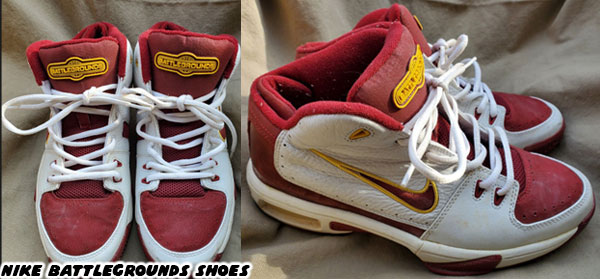
So all of the companies I will bring up have one thing in common: they are all profit-based. Each is in the business to make money. That is the bottom line. The ways in which they help the street game, the players and neighborhoods varies from company to company. It's impossible to say Nike is bad and AND1 is good based on one or two things, instead we have to look at the bigger picture and see what each company is contributing to the streetball culture.
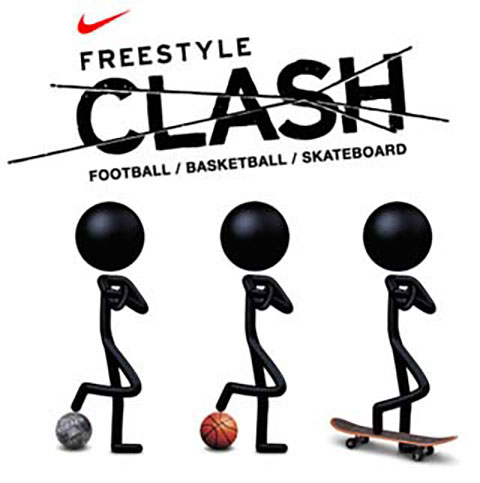
Those that attended also had a chance to buy limited-edition Freestyle products from the Nike store set up at the event. Chances are that Nike didn't even dent the cost of the tournament with proceeds from the store. However in the long run, those that attended the event will be more likely to associate Nike with all things sport, including sub-culture sports like skateboarding and streetball.
It is difficult to really endorse one brand over another just because they do more or less for the street game. There are simply too many things at stake to do that. Instead it is up to each person reading to decide if they can support a product or company based on their history with the game of basketball.
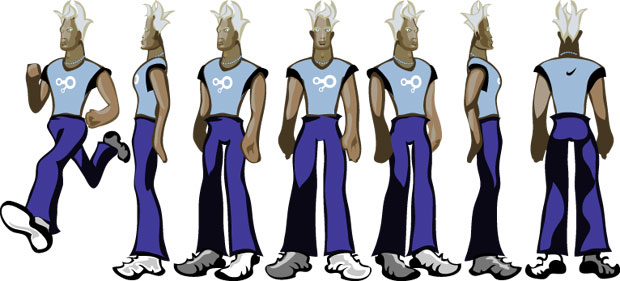
Very quickly the tapes became part of basketball culture and street culture. The music and fashion of street culture influences pop culture. It would only be a matter of time before everyone in the mainstream US was clued in on the mix tape phenomenon. AND1 ended up creating a demand for something they used to give away for free. AND1 was now in the position to begin selling the tapes in order to meet the demand.
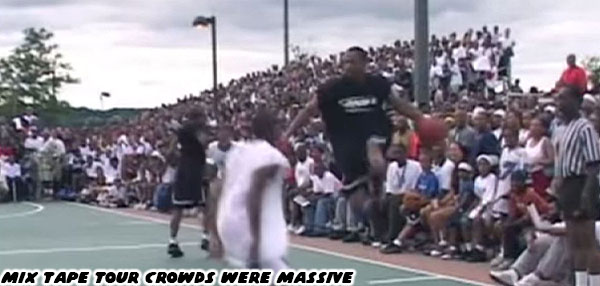
Instead of signing up streetball legends Reebok began by signing Hip Hop artists. Jay-Z and 50 Cent teamed up with Reebok to create exclusive shoes like the S. Carter Collection by RBK. Reebok then moved into the streetball scene by partnering up with the Entertainers Basketball Classic (EBC) and releasing a DVD promoting the game and "real" basketball. Reebok then followed up the EBC campaign with the "Who Dunit" interactive ads, featuring NBA players in a street setting. The ads hosted clues and a contest that people need a computer and internet connection in order to play. Through these events Reebok showed that they were also interested in streetball as a business venture and culture, by marketing to the different streetball fans, the NBA fan, mix tape fan and even internet clip fan.
I hope you aren't waiting for me to give you advice on what products to buy or which company to support because there simply is no easy answer. The world is not black and white, right or wrong, there are infinite shades of gray. There is a fine line between celebrating the history of streetball and exploiting the culture. What was once underground is now mainstream. Who do we have to thank or blame for this?
I am a very materialistic person. I'm not going to lie and say that I've given up my worldly possessions and is a monk living up in the hills. I am not giving up my computer and internet connection or videogame systems just because some kid in Thailand made the sneakers that I'm wearing for pennies a day. I won't be a hypocrite and tell you to give up something that I haven't. I can tell you that I make my purchases with a lot of things in mind and I try to be an "informed consumer." I try to figure out who is doing the selling and why.
No one company can claim that they represent streetball to the fullest. The game is older than they are, the legends and courts are older than the companies. Yes, there are some old apparel companies out there that have been around since the start of the NBA, but no company can claim that they were representing the street when the street game started. Those players were seen as the outcasts. The NBA players were supposed to be the elite and best.
Those street legends played regardless. They were heroes in the streets because of what they did on the court. And it used to be cool because only small towns knew the names of these people. Guys that were so great than anyone that saw him play could say "Aww, he could have f-cked up Jordan any day of the week" and not be lying. By word of mouth these names and legends were kept alive. That legacy was celebrated in the community and that history was never lost.
The more the apparel and media companies can exploit the game, the bigger their profit margin. By convincing us that the game is about entertainment now then they make it easier to package and market it. A lot of people watching the game have no time to learn about the roots and history of streetball when they're too busy watching Hot Sauce hypnotize the defense or the Bone Collector drop it between someone's legs. That is the major problem with the mainstream audience. They want to be entertained, they want to be part of something cool or hip, but they don't want to go to the trouble of doing their homework. It's easier to pay for a pair of kicks and a shooting shirt than it is to play a game in the park. By doing that the mainstream audience is losing a connection with the game and what made it so great to begin with. By the same token it's really hard to get mad at companies like AND 1 and Nike.
That sounds crazy right? Not to say that Nike and AND 1 are exploiting streetball? Hear me out though. For everything they are doing now, they still exposed a lot of real ballers and gave kids all over the world new heroes. Without the mix tapes we would have never seen Skip to My Lou and the worldwide mix tape craze would never have happened. Rafer Alston's name would not carry as much weight as it does now if it weren't for the mix tape exposure. A lot of the players for that matter would still only be local legends and not global legends if it weren't for the mix tapes.
"When you were young you saw some guy named Skip to My Lou bounce it off a defenders head and then cross him over then pass it between another defenders legs to a guy named Main Event for a 360 windmill dunk? Yeah right! Whatever!"
Chances are kids would never believe the things you've seen. But now you have proof. You have the mix tapes to reference, you have DVD's and computer clips to show and prove. The evidence is now here and forever that the players you grew up with were beyond amazing. They were living legends.
For those mix tapes we should be grateful for AND 1, the EBC and Nike. But we always have to remember who the founders were. If Skip, Hot Sauce and the other players are the best of our time, how good were the players in the 80's, 70's and 60's? How good were the ones that went toe-to-toe with Dr. J and Wilt Chamberlain? We have some pics and know some names, the sad part is that we don't have films, video or mix tapes on those players. Nobody ever recorded Earl "the Goat" Manigault Double Dunk. Nobody recorded the battles of Fly Williams or Pee Wee Kirkland. In their days those legends were the Main Events, Skip and Bone Collectors. Today it's hard for us to believe the things they did, just as many years from now people won't believe how great the early mix tape players were.
Did you ever play basketball? Or any basketball video games? Were you a fan of the Mix Tape Tour, or freestyle basketball? Or is this the first time you're hearing about it? Let me know in the comments section please. As always if you would like to sponsor me please visit my Patreon page and consider donating each month, even as little as $1 would help make better blogs and even podcasts!
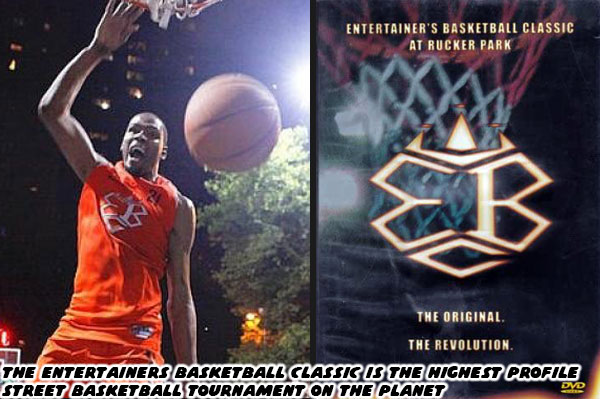
I hope you aren't waiting for me to give you advice on what products to buy or which company to support because there simply is no easy answer. The world is not black and white, right or wrong, there are infinite shades of gray. There is a fine line between celebrating the history of streetball and exploiting the culture. What was once underground is now mainstream. Who do we have to thank or blame for this?
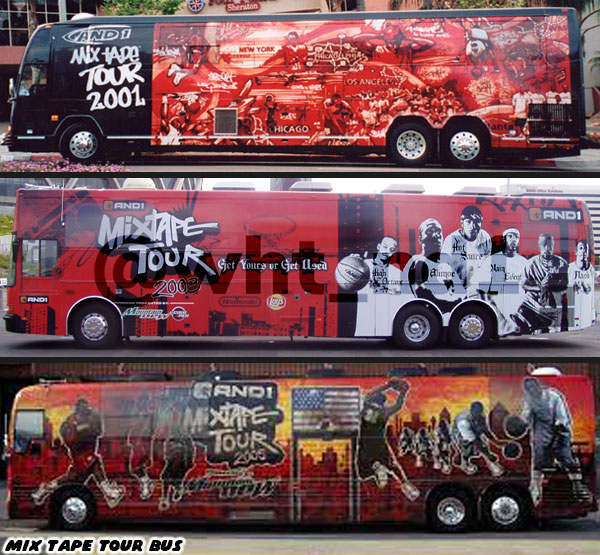
I am a very materialistic person. I'm not going to lie and say that I've given up my worldly possessions and is a monk living up in the hills. I am not giving up my computer and internet connection or videogame systems just because some kid in Thailand made the sneakers that I'm wearing for pennies a day. I won't be a hypocrite and tell you to give up something that I haven't. I can tell you that I make my purchases with a lot of things in mind and I try to be an "informed consumer." I try to figure out who is doing the selling and why.
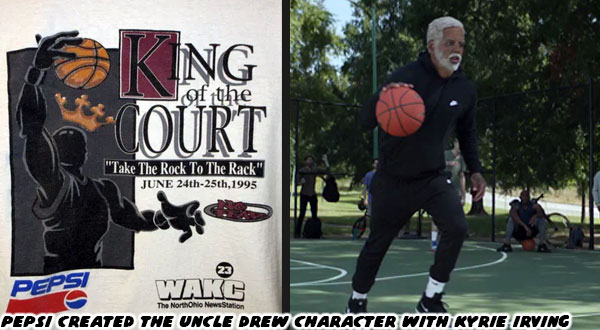
No one company can claim that they represent streetball to the fullest. The game is older than they are, the legends and courts are older than the companies. Yes, there are some old apparel companies out there that have been around since the start of the NBA, but no company can claim that they were representing the street when the street game started. Those players were seen as the outcasts. The NBA players were supposed to be the elite and best.
Those street legends played regardless. They were heroes in the streets because of what they did on the court. And it used to be cool because only small towns knew the names of these people. Guys that were so great than anyone that saw him play could say "Aww, he could have f-cked up Jordan any day of the week" and not be lying. By word of mouth these names and legends were kept alive. That legacy was celebrated in the community and that history was never lost.
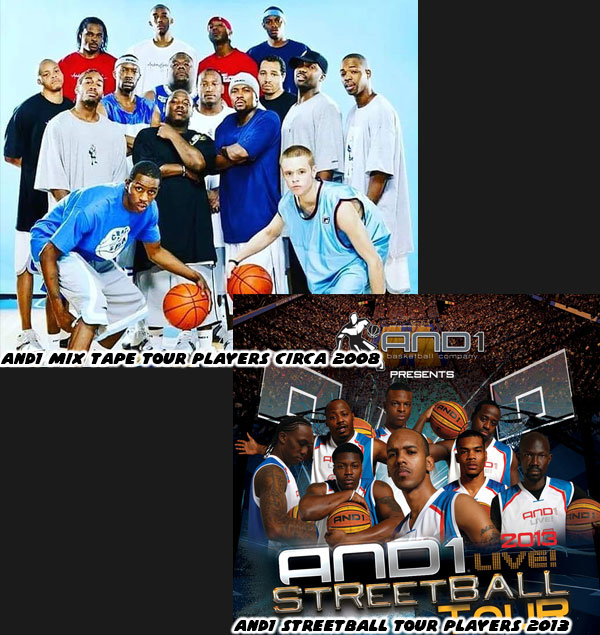
The more the apparel and media companies can exploit the game, the bigger their profit margin. By convincing us that the game is about entertainment now then they make it easier to package and market it. A lot of people watching the game have no time to learn about the roots and history of streetball when they're too busy watching Hot Sauce hypnotize the defense or the Bone Collector drop it between someone's legs. That is the major problem with the mainstream audience. They want to be entertained, they want to be part of something cool or hip, but they don't want to go to the trouble of doing their homework. It's easier to pay for a pair of kicks and a shooting shirt than it is to play a game in the park. By doing that the mainstream audience is losing a connection with the game and what made it so great to begin with. By the same token it's really hard to get mad at companies like AND 1 and Nike.
That sounds crazy right? Not to say that Nike and AND 1 are exploiting streetball? Hear me out though. For everything they are doing now, they still exposed a lot of real ballers and gave kids all over the world new heroes. Without the mix tapes we would have never seen Skip to My Lou and the worldwide mix tape craze would never have happened. Rafer Alston's name would not carry as much weight as it does now if it weren't for the mix tape exposure. A lot of the players for that matter would still only be local legends and not global legends if it weren't for the mix tapes.
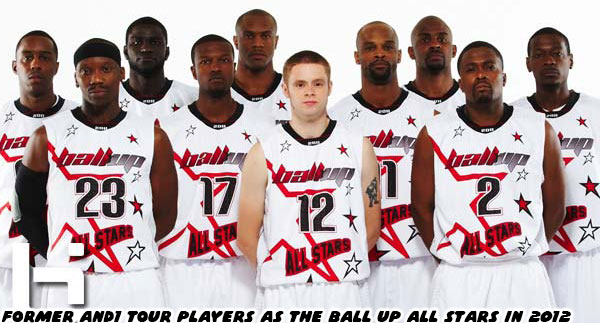
Many years from now if you have kids and they get into basketball and ask about who you looked up to what you would say? Who are the legends that made you jump out of your seat and do a double take? What crazy trick or amazing dunk were people talking about days, or years, later? Can you imagine telling these stories to your kid and having them not believe you?
Chances are kids would never believe the things you've seen. But now you have proof. You have the mix tapes to reference, you have DVD's and computer clips to show and prove. The evidence is now here and forever that the players you grew up with were beyond amazing. They were living legends.
For those mix tapes we should be grateful for AND 1, the EBC and Nike. But we always have to remember who the founders were. If Skip, Hot Sauce and the other players are the best of our time, how good were the players in the 80's, 70's and 60's? How good were the ones that went toe-to-toe with Dr. J and Wilt Chamberlain? We have some pics and know some names, the sad part is that we don't have films, video or mix tapes on those players. Nobody ever recorded Earl "the Goat" Manigault Double Dunk. Nobody recorded the battles of Fly Williams or Pee Wee Kirkland. In their days those legends were the Main Events, Skip and Bone Collectors. Today it's hard for us to believe the things they did, just as many years from now people won't believe how great the early mix tape players were.
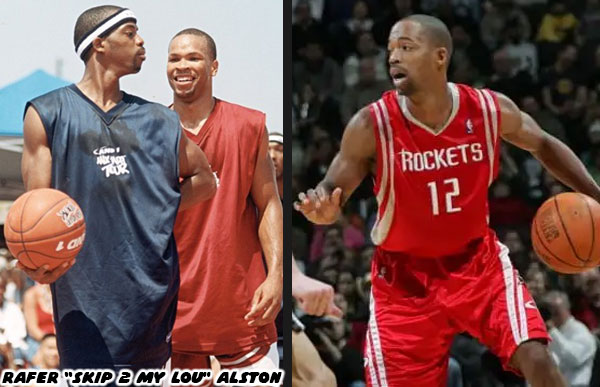
Did you ever play basketball? Or any basketball video games? Were you a fan of the Mix Tape Tour, or freestyle basketball? Or is this the first time you're hearing about it? Let me know in the comments section please. As always if you would like to sponsor me please visit my Patreon page and consider donating each month, even as little as $1 would help make better blogs and even podcasts!
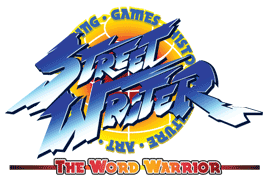
No comments:
Post a Comment